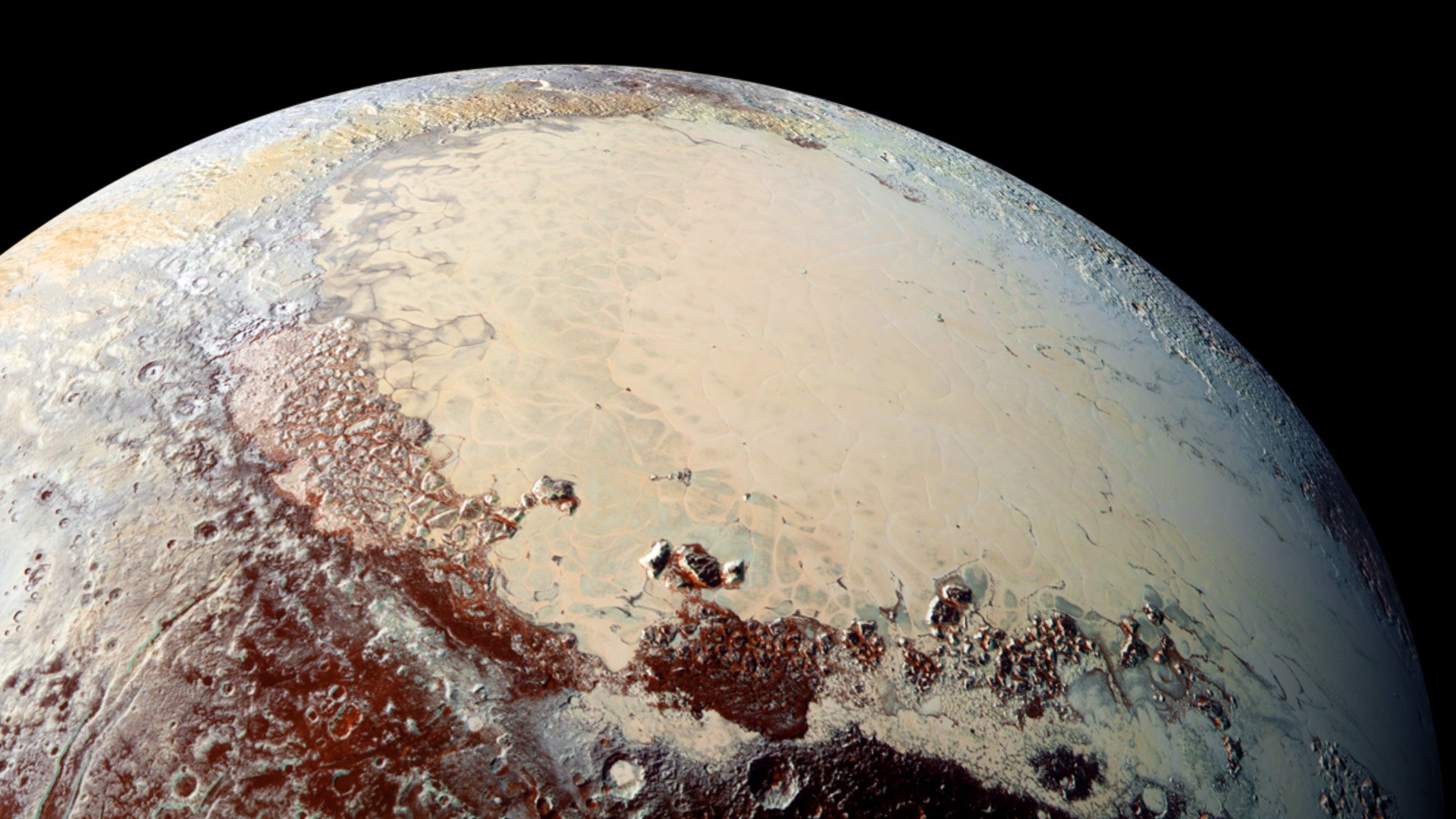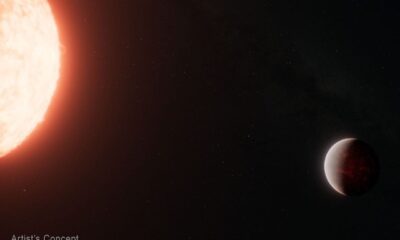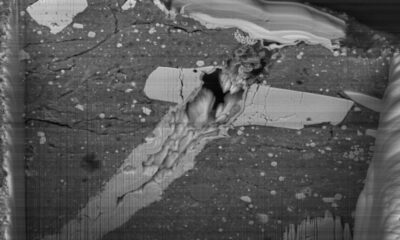Science
New Horizons Inspires Les Johnson to Revise Bova’s Pluto Novel

NASA’s New Horizons mission has not only transformed scientific understanding of Pluto but also inspired a new novel that reshapes the narrative of the dwarf planet. Following the passing of renowned science-fiction author Ben Bova in 2020, his notes for a novel titled “Pluto” were entrusted to space scientist Les Johnson, who undertook the task of completing the story within Bova’s Grand Tour series.
Initially, Bova envisioned Pluto as a rocky world with minimal ice. However, after consulting with Alan Stern, the principal investigator of the New Horizons mission, Johnson quickly discovered that this portrayal was inaccurate. Stern’s response highlighted the stark contrast between Bova’s depiction and the actual findings: “We never found anything on Pluto that was anything like that,” Johnson recounted during a recent episode of the Fiction Science podcast. This revelation compelled Johnson to delve deeper into the scientific realities of Pluto, ultimately leading to one of the first fictional accounts that accurately reflects its environment.
Exploring Pluto’s True Nature
The novel “Pluto” is set in the 22nd century, a time when humanity begins merging with technology and receiving data from Proxima Centauri b. The plot ignites with the discovery of an alien artifact buried beneath the ice of Sputnik Planitia, a significant region on Pluto. This finding triggers a response from scientists and military leaders from the U.S. Space Force, China, and Russia, creating a backdrop for both political intrigue and personal drama, including a shipboard romance between key characters.
Johnson, who has a background in both NASA research and science fiction writing, skillfully blends accurate scientific details with engaging storytelling. He maintains that the mix of fiction and science mirrors the composition of Pluto itself: approximately 30% solid material and 70% ice. The book not only serves as an exploration of Pluto but also aims to reflect ongoing human conflicts and relationships as humanity expands into the solar system.
Future Visions and Ethical Questions
In the narrative, Johnson introduces futuristic concepts that could resonate with readers today. One character, a scientist who suffers a severe accident, has his brain merged with artificial intelligence, allowing him to transfer his consciousness between machines. Johnson expresses concern that such advancements could lead to highly utilitarian thinking, potentially overshadowing compassion and humanity. He raises important questions about the implications of uploading human consciousness and retaining empathy in future societies.
Additionally, the novel touches on contemporary issues, such as virtual reality addiction. Johnson sees this as an important aspect of modern life, particularly among younger generations who may find themselves increasingly drawn to online gaming at the expense of real-world experiences.
As for the ongoing debate about Pluto’s planetary status, Johnson aligns himself with the classification of Pluto as a dwarf planet. He believes this distinction is largely a matter of nomenclature, especially in light of the numerous Pluto-like objects discovered in the Kuiper Belt.
Johnson hopes that readers will finish “Pluto” with a renewed sense of wonder about the cosmos. He states, “The scientist in me… wants to tell them, ‘Great, I want to help answer that. Go tell your congressman to send more money so we can figure out what’s out there.’” The novel not only captures the imagination but also aims to inspire future explorations.
In addition to his work on “Pluto,” Les Johnson recently retired from his role as chief technologist at NASA’s Marshall Space Flight Center and continues to contribute to the field as CEO of Infinite Frontiers Consulting. His latest science-fiction novel, “Crisis at Proxima,” co-authored with Travis S. Taylor, has just been released in paperback, and Johnson is already engaged in new projects, including “Monster Hunter: The Alien Files,” in collaboration with Larry Correia.
For those interested in exploring the boundaries of science and fiction, “Pluto” promises a captivating journey through the mysteries of our solar system, while also prompting critical reflections on humanity’s future in space. The Fiction Science podcast continues to explore these themes, inviting listeners to engage with the wonders of science fiction and its connections to real-world science.
-

 Technology5 months ago
Technology5 months agoDiscover the Top 10 Calorie Counting Apps of 2025
-

 Technology2 weeks ago
Technology2 weeks agoOpenAI to Implement Age Verification for ChatGPT by December 2025
-

 Health3 months ago
Health3 months agoBella Hadid Shares Health Update After Treatment for Lyme Disease
-

 Health3 months ago
Health3 months agoAnalysts Project Stronger Growth for Apple’s iPhone 17 Lineup
-

 Health3 months ago
Health3 months agoErin Bates Shares Recovery Update Following Sepsis Complications
-

 Technology5 months ago
Technology5 months agoDiscover How to Reverse Image Search Using ChatGPT Effortlessly
-

 Technology3 months ago
Technology3 months agoElectric Moto Influencer Surronster Arrested in Tijuana
-

 Technology2 months ago
Technology2 months agoDiscover 2025’s Top GPUs for Exceptional 4K Gaming Performance
-

 Technology5 months ago
Technology5 months agoMeta Initiates $60B AI Data Center Expansion, Starting in Ohio
-

 Technology5 months ago
Technology5 months agoRecovering a Suspended TikTok Account: A Step-by-Step Guide
-

 Health5 months ago
Health5 months agoTested: Rab Firewall Mountain Jacket Survives Harsh Conditions
-

 Lifestyle5 months ago
Lifestyle5 months agoBelton Family Reunites After Daughter Survives Hill Country Floods





















